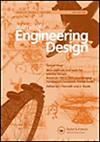A systematic literature review of changeability in engineering systems along the life cycle
IF 3.4
2区 工程技术
Q1 ENGINEERING, MULTIDISCIPLINARY
引用次数: 0
Abstract
The escalating dynamism of external pressures and the persistent demand from stakeholders for systems to maintain value amidst continuous change necessitates a re-evaluation of how system value is delivered. This literature review addresses the ambiguously defined concept of changeability, which spans domains, incorporates various ‘ilities’ and has in part impeded the formulation of effective comprehensive industry strategies. As a successful approach to cope with change, changeability involves the design of engineering systems that can continue to change, quickly (agile) and easily (flexible). This paper elucidates how changeability is defined, and the elements used to evaluate change in engineering systems. Subsequently, it reviews the methods and strategies employed to quantify, measure, and analyse changeability and change-related ‘ilities’. An examination of various cases and applied research sets allowed the researchers to illustrate the roles, features and effects of changeability in the design of complex engineering systems throughout the entire lifecycle, thereby confirming and consolidating how changeability is both perceived and executed. Based on these findings, future research related to the quantification of changeability levels, and the cost implications associated are proposed, with an emphasis on utilising and integrating systems models (model-based systems engineering) to standardise and simplify implementation across various engineering systems.对工程系统在整个生命周期中的可变性进行系统的文献综述
不断升级的外部压力和利益相关者对系统在持续变化中保持价值的持续需求,需要对如何交付系统价值进行重新评估。这篇文献综述解决了定义模糊的可变性概念,它跨越了领域,包含了各种“能力”,并在一定程度上阻碍了有效的综合行业战略的制定。作为一种成功的应对变化的方法,可变性涉及到能够持续变化的工程系统的设计,快速(敏捷)和容易(灵活)。本文阐明了如何定义可变性,以及用于评估工程系统变化的要素。随后,它回顾了用于量化、测量和分析可变性和与变化相关的“能力”的方法和策略。通过对各种案例和应用研究集的研究,研究人员可以阐明在整个生命周期中复杂工程系统设计中可变性的作用、特征和影响,从而确认和巩固可变性是如何被感知和执行的。基于这些发现,提出了与可变性水平的量化相关的未来研究,以及相关的成本影响,重点是利用和集成系统模型(基于模型的系统工程)来标准化和简化各种工程系统的实施。
本文章由计算机程序翻译,如有差异,请以英文原文为准。
求助全文
约1分钟内获得全文
求助全文
来源期刊

Journal of Engineering Design
工程技术-工程:综合
CiteScore
5.00
自引率
33.30%
发文量
18
审稿时长
4.5 months
期刊介绍:
The Journal of Engineering Design is a leading international publication that provides an essential forum for dialogue on important issues across all disciplines and aspects of the design of engineered products and systems. The Journal publishes pioneering, contemporary, best industrial practice as well as authoritative research, studies and review papers on the underlying principles of design, its management, practice, techniques and methodologies, rather than specific domain applications.
We welcome papers that examine the following topics:
Engineering design aesthetics, style and form-
Big data analytics in engineering design-
Collaborative design in engineering-
Engineering concept design-
Creativity and innovation in engineering-
Engineering design architectures-
Design costing in engineering
Design education and pedagogy in engineering-
Engineering design for X, e.g. manufacturability, assembly, environment, sustainability-
Engineering design management-
Design risk and uncertainty in engineering-
Engineering design theory and methodology-
Designing product platforms, modularity and reuse in engineering-
Emotive design, e.g. Kansei engineering-
Ergonomics, styling and the design process-
Evolutionary design activity in engineering (product improvement & refinement)-
Global and distributed engineering design-
Inclusive design and assistive engineering technology-
Engineering industrial design and total design-
Integrated engineering design development-
Knowledge and information management in engineering-
Engineering maintainability, sustainability, safety and standards-
Multi, inter and trans disciplinary engineering design-
New engineering product design and development-
Engineering product introduction process[...]
 求助内容:
求助内容: 应助结果提醒方式:
应助结果提醒方式:


